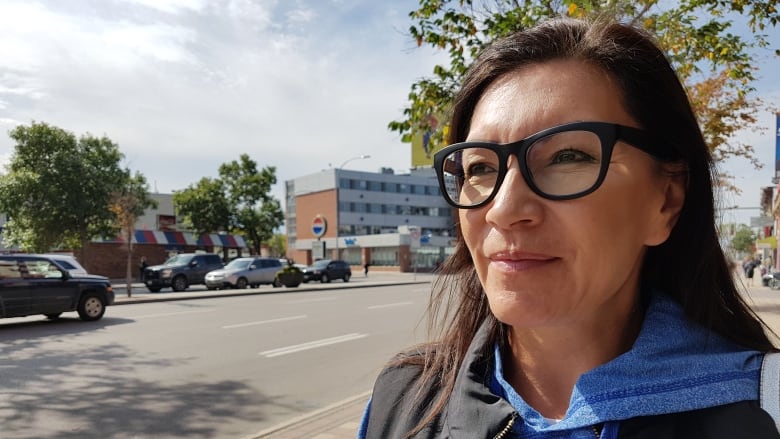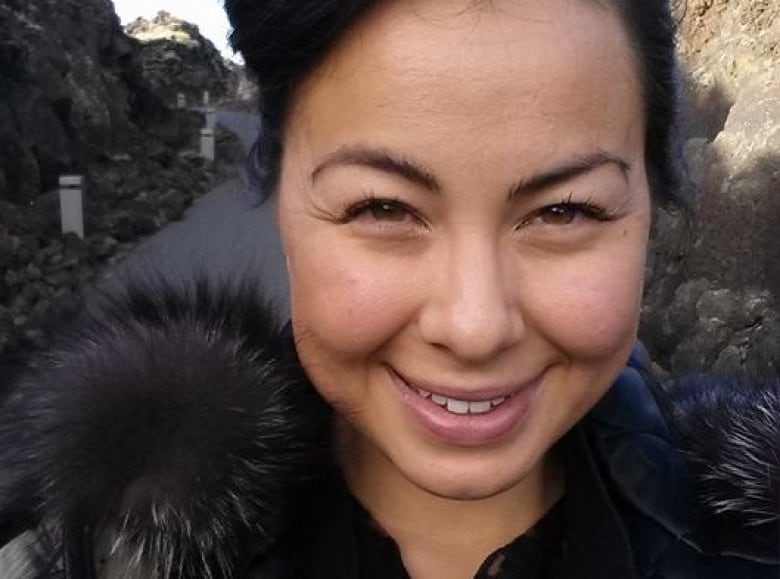Cultural appropriation argument ‘brings us back a few steps,’ says head of Indigenous Music Awards

The woman who runs the Manito Ahbee festival said she doesn’t believe cultural appropriation is possible within the Indigenous community, after a group of Inuit artists pulled out of the Indigenous Music Awards earlier this week, citing concerns about what they described as the cultural appropriation of throat singing.
“If you’re asking me as a pipe carrier,” whether cultural appropriation is possible in the Indigenous community, “the answer is no,” said Lisa Meeches.
“Creator and spirit don’t understand that kind of language and that kind of rhetoric,” said Meeches, who is Anishinaabe (First Nations) and is the executive director of the Manito Ahbee festival, which oversees the Indigenous Music Awards held in Winnipeg, Manitoba (Prairies) every year.
In a Wednesday phone interview with Ismaila Alfa, host of CBC Radio’s Up To Speed, Meeches said that she applauds the group of Inuit artists, including Tanya Tagaq, Kelly Fraser and PIQSIQ, for having the strength to stand their ground.
But she questioned their use of social media to address their concerns about cultural appropriation.
At the heart of the issue is Nehiyaw (Cree) singer Connie LeGrande, who performs as Cikwes. She was nominated in the “best folk album” category of the Indigenous Music Awards, but is being accused of appropriating Inuit style throat singing in her music.
“This thing about Connie is that she was given the songs by an Inuit family,” said Meeches.
“She performed [throat singing] at [APTN’s] Aboriginal Day live in Edmonton,” Meeches said.
“By her belief, she did receive the proper teachings,” she said, though “later on that family, or that individual, said it was wrong to teach her that.”
In a 2015 Facebook post which was recently reposted by another user, LeGrande wrote that she was “fascinated with Inuit throat singing” and “I decide[d] to teach myself by listening to Tanya [Tagaq’s] music.”
LeGrande has not responded to a request for comment.
Connie LeGrande , I suggest you withdraw the music from the IMA’s and apologize to the Inuit for this act of cultural…
Posted by Zhòh Zraii Vaneltsi on Wednesday, April 3, 2019
Meeches said after a series of meetings and consultations with the IMA’s board and their elders committee, the decision was made to let Cikwes’s nomination stand in the best folk category.
There are currently no Inuit representatives on Manito Ahbee’s board of directors, she said — the board reached out to the Manitoba Inuit Association last year for someone to join the board, but didn’t receive a response.
“We’ve always been inclusive with regard to how we should move forward as a festival, and so it’s very disappointing how this collective is using social media as a platform when we’ve always been attentive to their needs,” said Meeches.
Despite the emergency meetings and the decision to let the nomination for Cikwes’s album stand, Meeches hopes there will be a peaceful resolution with the Inuit artists, who refer to themselves as the Arnaqquasaaq Collective.
“We realized that there are many hurt people in this discussion, but we’ve been wanting non-Indigenous people to play a part in learning and discovering who we are through reconciliation acts, and this does not bode well for that discussion,” said Meeches.
“And so it brings us back a few steps.”
‘It’s up to Inuit to decide’
Tiffany Ayalik, who makes up the Yellowknife throat singing duo PIQSIQ with her sister Kayley Mackay, believes in collaborating and sharing cultural songs with other Indigenous communities.
However, she thinks Meeches’s view on appropriation is problematic.
“The language that was used in that statement by Lisa is already quite pan-Indigenizing and is very much from a First Nations point of view,” said Ayalik.
“When we look at the specifics of Inuit culture, there are many Inuit who don’t actually have, in our traditional spirituality, a single, singular, creative force like a creator,” said Ayalik.
She doesn’t agree with imposing those beliefs on other Indigenous nations who may not share them.

“When things like that are spouted back to us, like ‘spirit’ and ‘creator,’ that’s also assuming that we’d have the same set of spiritual practices, which we don’t.”
Ayalik also offered a different take on where LeGrande learned how to throat sing.
According to Ayalik, two people were asked to perform throat singing at an artists’ demonstration being hosted by the federal government. When one of the throat singers had to drop out, LeGrande was taught the very basics of throat singing and performed that day.
“[It was] not for the purpose of giving her permission to then go and take something that isn’t hers and make an album, and put it on iTunes, and have it for sale,” said Ayalik.
“She’s also taking money for this practice, when she isn’t part of that culture, therefore taking up space at festivals, taking the space away from Inuit.”
With a smaller population, less access to resources and fewer opportunities, Ayalik argues that Inuit are even further marginalized among other Indigenous groups.
“And this is just a furthering of that reality, that we are underrepresented even within Indigenous circles and communities, and especially in the music industry,” said Ayalik.
“So if people are interested in working or having throat singing in part of their collaboration? Hire us. Hire us. Hire us.”
Related stories from around the North:
Canada: Debate in Arctic Canada over who should sell traditional crafts, CBC News
Norway: Norway sends song with Sami joik to Eurovision Song Contest, The Independent Barents Observer
United Kingdom: U.K. fashion label apologizes for copied Inuit design, Radio Canada International



